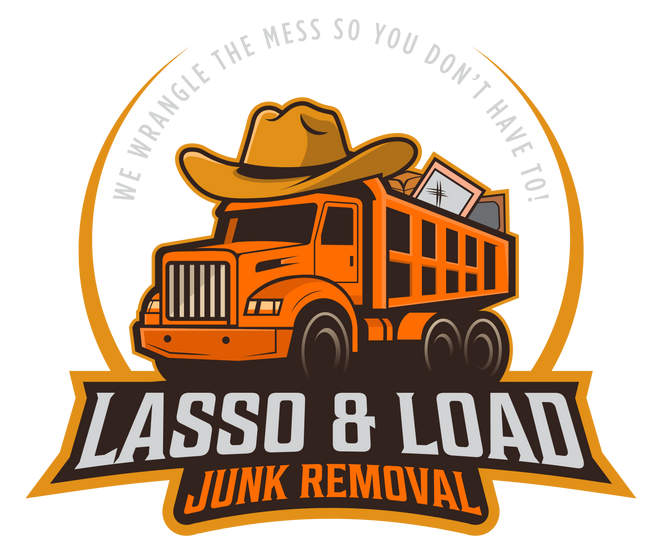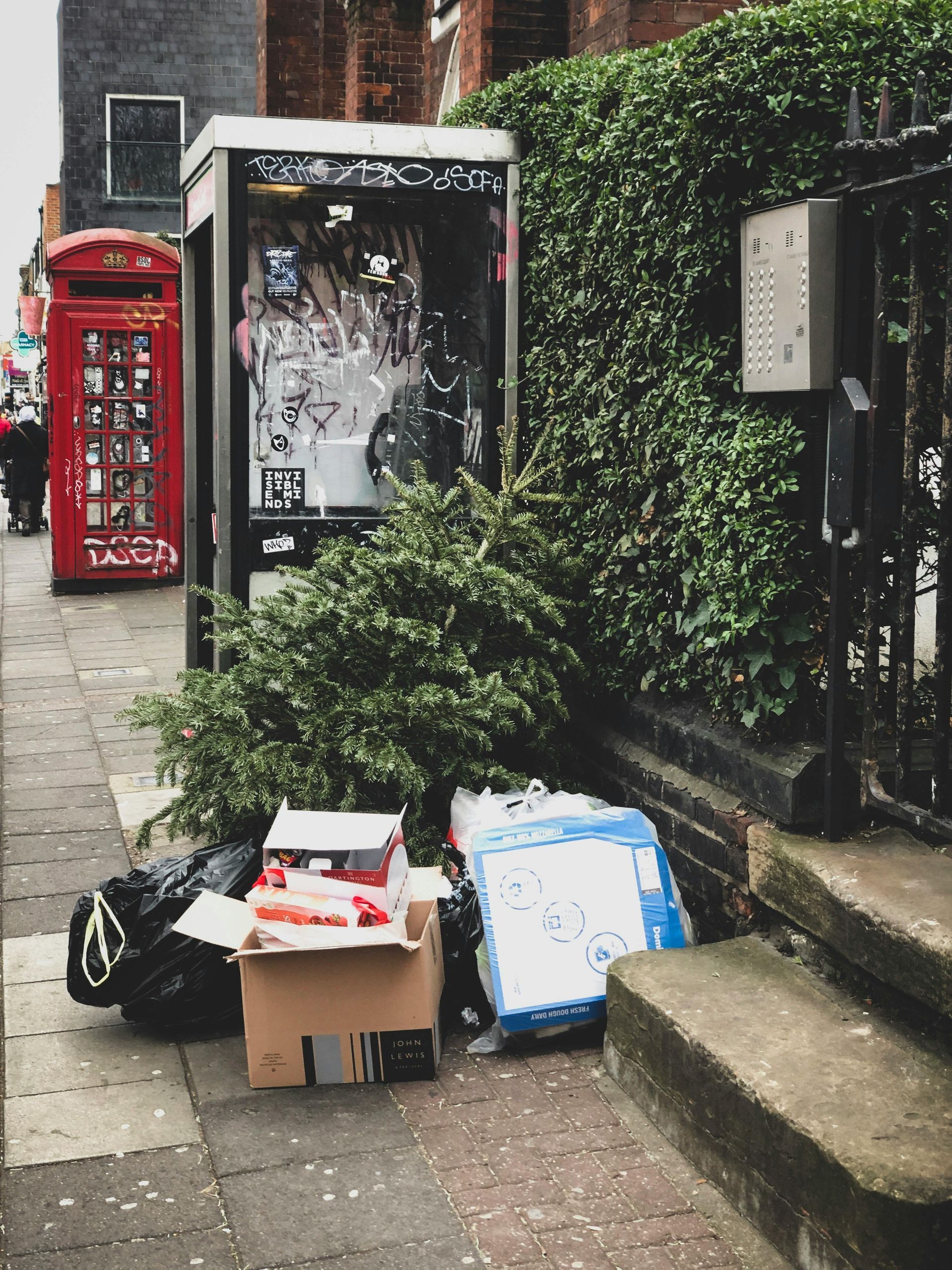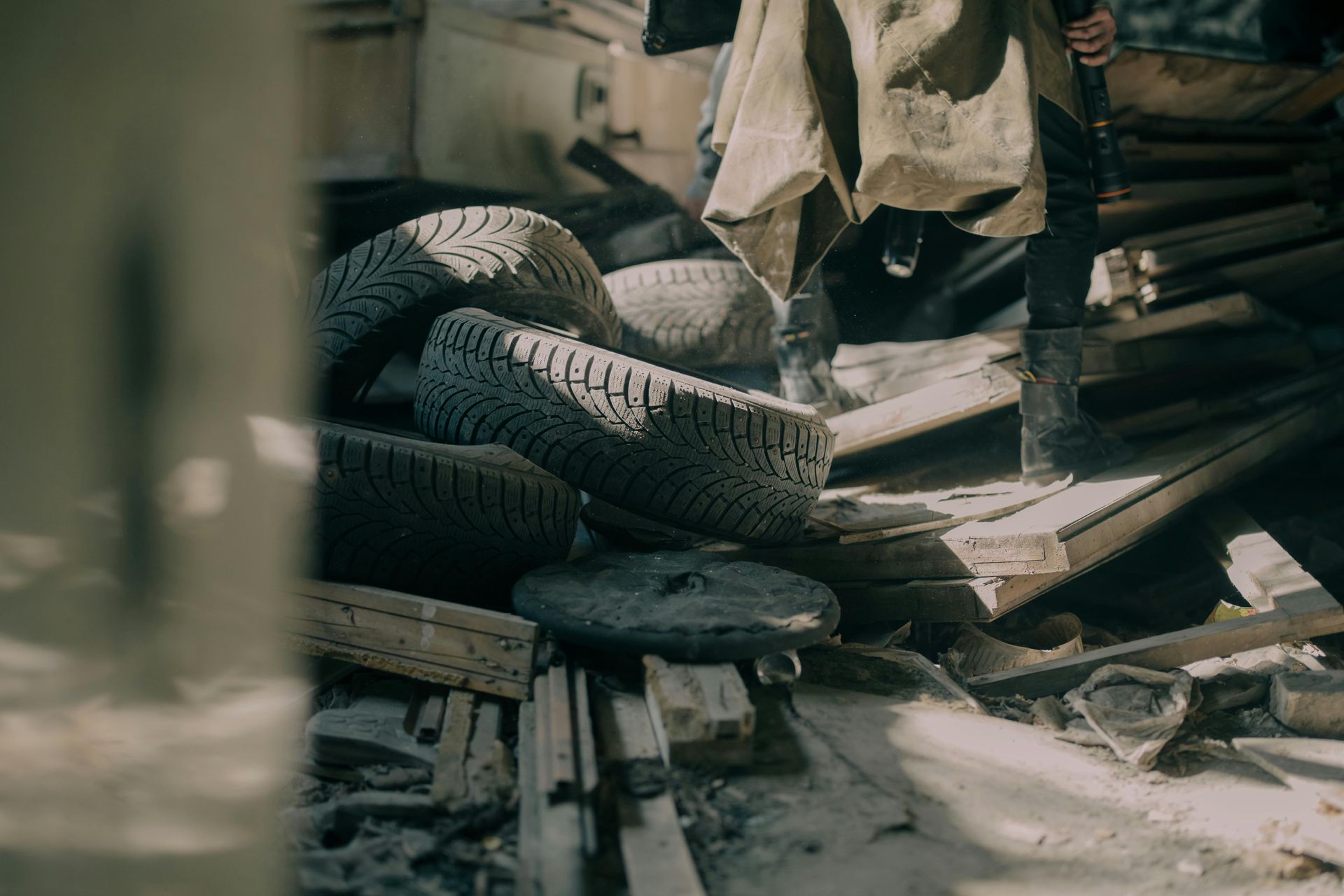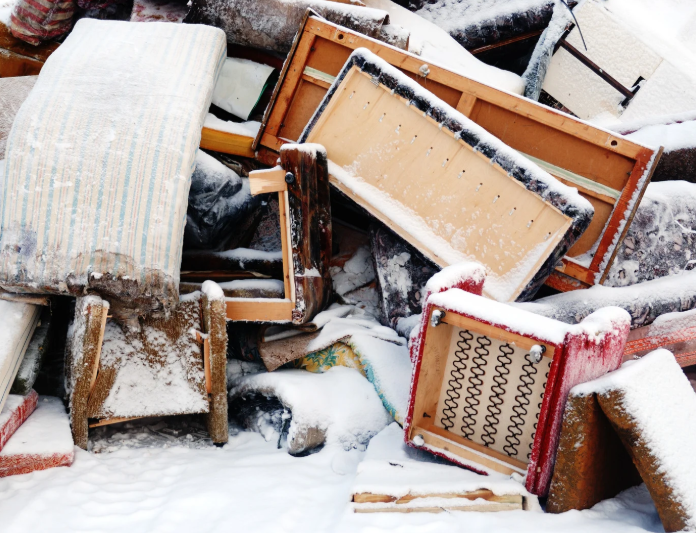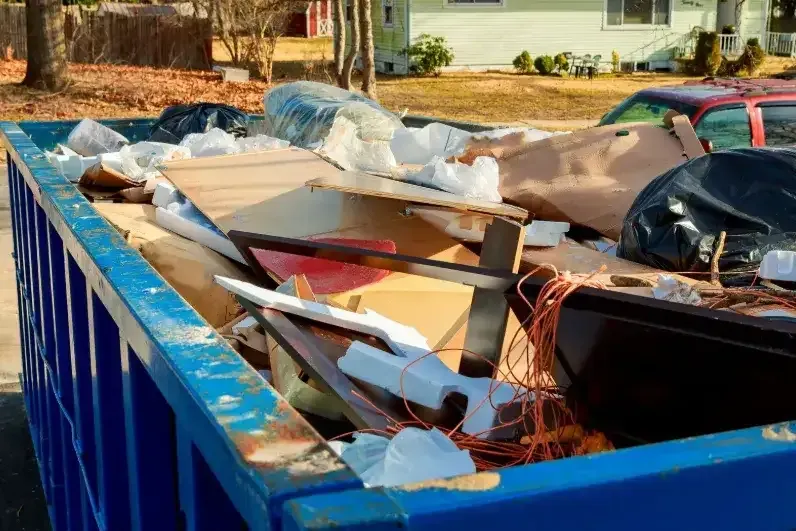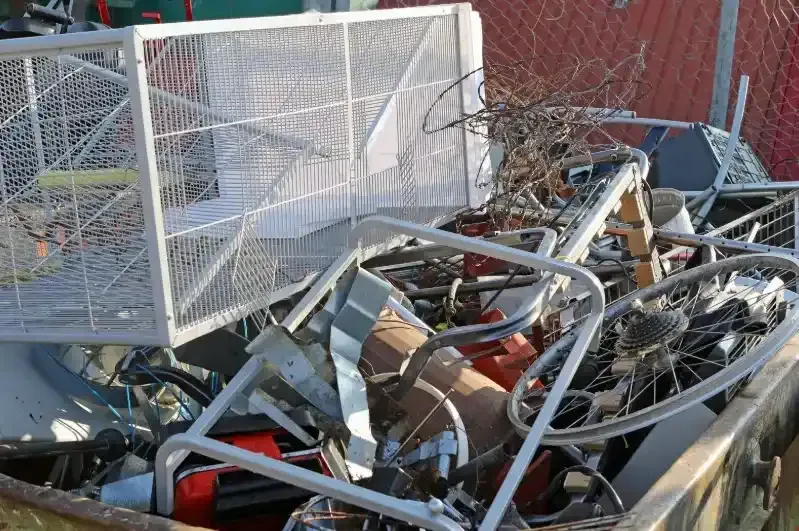Tips for Proper Appliance Removal and Disposal
Appliances are essential to modern living, but when they reach the end of their lifespan, disposing of them properly can be a challenge. Many homeowners and business owners unknowingly make mistakes, such as leaving appliances on the curb, dumping them illegally, or failing to explore eco-friendly disposal options. Improper disposal can contribute to pollution, waste valuable materials, and even pose health hazards due to chemicals like refrigerants or heavy metals.
To ensure responsible appliance removal, consider recycling, donating, or selling appliances that are still in usable condition. Local charities, shelters, and secondhand stores often accept gently used appliances, while recycling centers safely process old units to recover valuable materials.
Understanding the Importance of Proper Disposal
It’s tempting to simply leave an old refrigerator, washing machine, or microwave on the curb and hope that someone else will take care of it. Unfortunately, many appliances contain hazardous materials that can be harmful if not disposed of correctly. Refrigerators and air conditioners, for example, contain refrigerants that deplete the ozone layer, while other appliances may have heavy metals or electronic components that can leach toxins into the soil and water supply.
Disposing of appliances responsibly not only helps the environment but also ensures compliance with local regulations. Many municipalities have strict guidelines on waste disposal, and improper dumping can lead to fines. Additionally, recycling or donating used appliances can help others in need while reducing landfill waste.
Preparing for Appliance Removal
Before you move an appliance out of your home, there are several crucial steps to take. First, unplug the unit at least 24 hours in advance, especially if it contains liquids such as water or refrigerants. For refrigerators and freezers, remove all food and allow them to defrost completely. Clean any remaining residue to prevent mold and odors.
Disconnect water and gas lines carefully. Washing machines and dishwashers need to have their hoses detached and drained. Gas appliances such as stoves and dryers require special handling to avoid leaks or explosions. If you’re unsure, always consult a professional to ensure a safe disconnection.
Once everything is disconnected, secure any loose parts. Doors should be taped shut to prevent them from swinging open during transport. If the appliance has glass components, such as oven doors, handle them with extra care. Proper preparation will make removal safer and more efficient.

Eco-Friendly Disposal Options
Eco-friendly disposal options for old appliances help reduce environmental impact while benefiting the community. Recycling is one of the best ways to handle unwanted appliances, as many contain valuable metals, plastics, and other reusable materials. Local recycling centers or municipal programs often accept old refrigerators, washers, and ovens, ensuring they are processed properly. Donation is another excellent option if the appliance is still in working condition. Many charities, shelters, and nonprofit organizations accept used appliances to help families in need. Selling or giving away functional appliances through online marketplaces or community groups also extends their lifespan and keeps them out of landfills.
For appliances that are beyond repair, hiring a professional
junk removal service ensures safe and responsible disposal. These companies follow proper environmental guidelines, handling hazardous components like refrigerants and electronic parts with care. Some services partner with recycling centers to repurpose materials, reducing waste and pollution. By choosing eco-friendly disposal options, individuals can contribute to sustainability efforts while keeping their homes clutter-free.
Hazardous Materials and Special Handling
Certain appliances contain hazardous materials that require specialized disposal methods. Refrigerators, air conditioners, and freezers contain Freon, a chemical that must be removed by a certified professional. Microwaves, televisions, and other electronic appliances may contain lead or mercury, making them unsafe for landfill disposal.
Many communities host hazardous waste collection events where residents can drop off appliances for safe disposal. If you have an appliance with hazardous components, check with local waste management services for the best disposal options.
Hiring a Professional Removal Service
Moving and disposing of large appliances can be overwhelming, especially if you lack the necessary equipment or transportation. Hiring a professional junk removal service ensures a hassle-free experience. These professionals have the expertise to handle heavy appliances safely, and many companies offer environmentally responsible disposal options.
Professional removal services also save time and effort, especially when dealing with multiple items or oversized units. They can navigate tight spaces, staircases, and tricky exits without causing damage to your property. This option is ideal for homeowners undergoing renovations, businesses upgrading their equipment, or anyone looking to clear out clutter quickly.
Avoiding Illegal Dumping
One of the worst things you can do with an old appliance is abandon it in an alley, vacant lot, or on the side of the road. Illegal dumping not only creates an eyesore but also poses significant environmental risks. Refrigerators, washing machines, and air conditioners often contain hazardous materials like Freon, lead, or mercury, which can seep into the ground, contaminating soil and water sources. These discarded appliances can also attract pests, create safety hazards, and contribute to urban decay by making neighborhoods look neglected.
Beyond environmental damage, illegal dumping can have serious legal consequences. Many cities have strict waste disposal regulations, and those caught dumping appliances improperly can face hefty fines or even legal action. Instead of resorting to illegal dumping, check with your local waste management services for proper disposal options. Some municipalities offer free bulk pick-up services, making it easier to dispose of appliances responsibly while keeping the community clean and safe.
The Future of Appliance Disposal
As technology advances, so do the ways we handle old appliances. Companies are developing innovative recycling methods to extract valuable materials more efficiently. Governments are implementing stricter environmental policies to encourage responsible disposal. Consumers are becoming more aware of their role in reducing waste.
Future trends may include biodegradable appliance components, expanded recycling programs, and more incentives for sustainable disposal. Staying informed about these developments can help you make better choices when the time comes to replace an appliance.
Why Appliance Disposal Matters and How to Do It Right
Most people don’t think twice about throwing out an old appliance, but improper disposal can have serious environmental and legal consequences. Many household appliances contain hazardous materials such as Freon, mercury, and heavy metals that can seep into the ground and pollute the air and water. Dumping these items irresponsibly can lead to fines, health risks, and long-term environmental damage. Additionally, old appliances take up massive space in landfills, contributing to waste management problems that could otherwise be mitigated through proper recycling or donation programs.
Understanding the right way to remove and dispose of appliances is crucial for homeowners and businesses alike. Instead of simply placing an unwanted refrigerator or oven on the curb, consider recycling, donating, or hiring a professional removal service. These options not only help the environment but also provide a more ethical and responsible solution. Taking the extra step to dispose of appliances correctly ensures a cleaner planet and a safer community.
Outdated Appliances and the Best Ways to Get Rid of Them
Outdated appliances can take up unnecessary space, waste energy, and even become safety hazards if left unused for too long. Instead of letting an old stove, fridge, or dishwasher gather dust in your home, there are several responsible ways to dispose of it. One option is to sell or donate the appliance if it’s still in working condition. Many charitable organizations accept used appliances and redistribute them to families in need, extending their lifespan while helping others.
If your appliance is broken beyond repair, consider hiring a junk removal service that specializes in proper disposal. Many services will dismantle appliances and ensure recyclable parts are processed correctly. Additionally, some municipalities offer bulk waste pick-up programs to prevent illegal dumping. By exploring these disposal options, you contribute to a cleaner environment and make room for more efficient, modern appliances that save energy and lower utility costs.
What to Do With Old Appliances Before They Become a Problem
Old appliances don’t just become useless overnight—many start to show signs of wear long before they stop working entirely. Instead of waiting until your refrigerator, oven, or washing machine breaks down, plan ahead for its disposal. If an appliance is still functional but inefficient, selling or donating it can be a great way to give it a second life. Many non-profits accept used appliances and distribute them to families in need, reducing waste and helping others at the same time.
For broken appliances, responsible disposal is key to avoiding environmental harm. Recycling centers can extract valuable materials while properly disposing of hazardous substances. If you’re unsure where to take your old appliance, professional junk removal services can handle the entire process for you. By acting before an appliance becomes a burden, you save time, avoid fines, and contribute to a cleaner, greener community.
Conclusion
Proper appliance removal and disposal require careful planning and responsible decision-making. Disposing of old appliances incorrectly can lead to environmental harm and safety hazards. Instead of sending them to a landfill, consider eco-friendly options such as recycling, donating, or selling. Many appliances contain valuable materials that can be repurposed, while others may still be useful to those in need.
If your appliance is no longer functional, professional removal services can ensure safe handling and proper disposal, especially when dealing with hazardous materials like refrigerants or electronic components. Avoiding illegal dumping and opting for responsible disposal methods help protect the environment and your local community. For residents in Gwinnett County, Lasso & Load Junk Removal offers a hassle-free solution for appliance removal. Whether it’s an old refrigerator, a broken washer, or any other bulky appliance, our team handles the process efficiently and responsibly. Contact us at 404-227-2017 or email Lauren.renwickk@gmail.com to schedule a pickup today!
